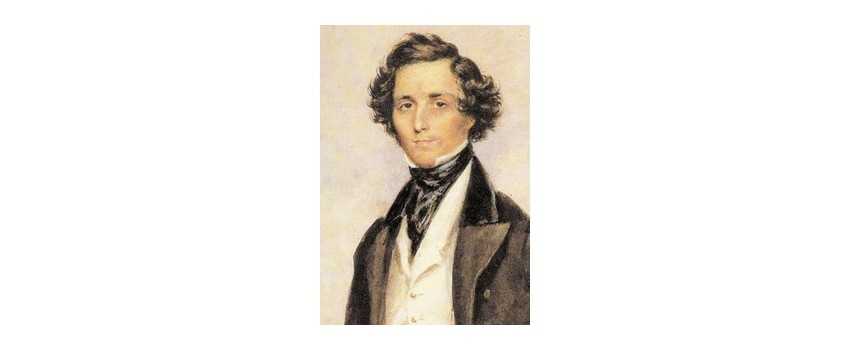Mendelssohn, Song Without Words for Cello (IMC)
Mendelssohn Song without Words Opus 109 for violincello and piano (IMC)
Classical music has a rich history, with some composers being household names. But there is one composer whose contributions to classical music are often overlooked: Felix Mendelssohn (3 February 1809 – 4 November 1847). Despite being a child prodigy and composing some of the most beautiful music of his time, Mendelssohn's life and legacy have remained a mystery to many.
Early Life and Family Background
Felix Mendelssohn was born in Hamburg, Germany in 1809. He was the second of four children born to Abraham and Lea Mendelssohn. His family was wealthy and influential in the Jewish community, and his grandfather, Moses Mendelssohn, was a well-known philosopher. Despite their wealth, the Mendelssohn family faced discrimination because of their Jewish heritage. 1816 they converted to Christianity, and Felix was baptized in the same year.
From a young age, Felix showed an extraordinary musical talent. His parents encouraged his musical pursuits, and he began taking piano lessons from his mother at six. He also received violin lessons from Eduard Rietz, who was a member of the Berlin Court Orchestra. In 1819, Felix's family moved to Berlin, where he continued his musical studies under the tutelage of Carl Friedrich Zelter, a prominent composer and conductor.
Despite his musical talent, Felix's parents strongly emphasized his education. He was educated in various subjects, including languages, history, and literature. He was also exposed to the works of the great composers of the time, including Bach, Mozart, and Beethoven.
Musical Education and Influences
In addition to his formal education, Felix was deeply influenced by the music of his time. He was particularly enamored with the works of Bach, and he was instrumental in reviving interest in Bach's music during the 19th century. He also drew inspiration from the music of Mozart and Beethoven, and he incorporated elements of their styles into his compositions.
In 1825, Felix made his public debut as a composer and pianist. He performed his Piano Quartet in C minor, and the performance was met with critical acclaim. This marked the beginning of his career as a composer, and he quickly gained a reputation as one of the most talented musicians of his time.
Throughout his life, Felix maintained close relationships with other musicians and composers. He was particularly close to Robert Schumann and his wife Clara, both prominent musicians in their own right. He also worked closely with the conductor Ferdinand Hiller, who conducted many of his works.
Mendelssohn's Notable Compositions
Felix Mendelssohn composed a wide range of music, including symphonies, concertos, chamber music, and choral works. His music was characterized by its lyricism, elegance, and emotional depth. He was particularly skilled at creating melodies that were both beautiful and memorable.
One of Mendelssohn's most famous works is his Violin Concerto in E minor, which he composed in 1844. The concerto is widely regarded as one of the greatest works in the violin repertoire. Its soaring melodies and virtuosic passages characterize it, and countless violinists have performed it.
Another notable work by Mendelssohn is his Symphony No. 4, also known as the Italian Symphony. The symphony was inspired by Mendelssohn's travels in Italy and is characterized by its sunny melodies and lively rhythms. It is one of Mendelssohn's most popular works and is frequently performed by orchestras worldwide.
Mendelssohn also composed a wide range of chamber music, including his String Quartets and String Quintets. His Octet for Strings, which he composed when he was just 16 years old, is widely regarded as one of the greatest works in the chamber music repertoire.
Conclusion
Felix Mendelssohn was a musical genius whose contributions to classical music are often overlooked. His life and legacy have remained a mystery to many, but his impact on music is undeniable. From his early years as a musical prodigy to his groundbreaking compositions that bridged the gap between the classical and romantic periods, Mendelssohn's influence can be heard in the works of countless composers who came after him.

Mendelssohn Song without Words Opus 109 for violincello and piano (IMC)
The "Lied ohne Worte" (Song without Words) in D major, Op. 109 is a unique posthumous piece of Felix Mendelssohn-Bartholdy (1809-1847) arranged for Cello and Piano by Michael Denhoff, published by Breitkopf & Härtel. This character piece was created in 1845 and was dedicated by the composer to "Miss Lisa Cristiani".
Mendelssohn, Song without Words for Cello (or viola) and Piano (Schott)
Mendelssohn Variations Op 17 and other pieces for violin and cello(Henle)
Mendelssohn, Sonata in D Op. 58 for Cello (Henle)
The Collected Works for Cello and Piano Mendelssohn (The Well Tempered Press)